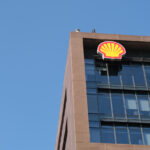Niger Delta Avengers bomb Shell and Eni pipelines
A militant group calling itself the Niger Delta Avengers continues to attack oil and gas infrastructure in Nigeria in a bid to undermine the current presidential administration. On Friday, the group bombed two pipelines, one owned by Royal Dutch Shell (ticker: RDSA) and the other owned by Eni (ticker: E), according to Nigeria’s navy.
Extorting oil and gas companies, or stealing from oil pipelines, have both been common practices in Nigeria’s Delta, where most of the country’s crude oil is produced. The Avenger’s strategy seems to be focused more on creating political turmoil than generating a profit, however.
Nigeria’s president, Muhammadu Buhari, is a former military dictator from Nigeria’s north who was elected last year, and is unpopular in the country’s south: He received just 13% of the vote in the Niger Delta, reports The Wall Street Journal.
“It is different this time,” said Dolapo Oni, oil and gas analyst for Togo-based Ecobank Transnational Inc. “These guys are not stealing crude. They just bomb the pipelines and they run away. They just want to destroy.”
Attacks on Nigeria’s oil infrastructure have seen the country’s output fall to 0.8 MMBOPD from 1.8 MMBOPD earlier this year, said Piper Jaffray Cos.’ Simmons & Co. International, citing government officials.
No sign of improvement
It appears that things will not improve in the near future, either. Nigeria’s information minister, Lai Mohammed, has publicly asked the Avengers to negotiate, but the response has been a mix of threats, steep demands and more attacks.
“To the International Oil Companies and Indigenous Oil Companies, it’s going to be bloody,” the Avengers said in an online statement. “Your facilities and personnel will bear the brunt of our fury.”
The loss of roughly 1 MMBOPD from Nigeria has lent significant support to oil prices, with WTI up over 2% today at $49.71, and Brent closing at $50.54 today.
“It is clearly having a material impact,” said James Davis, head of oil supply at London-based consultancy Facts Global Energy.
The attacks are seriously affecting the country’s already strained economy. Nigeria’s economy contracted 0.36% in the first quarter of the year, and is now headed into an “imminent” recession, Godwin Emefiele, governor of the central bank, said in May.
Citigroup optimistic on future oil prices
Outages in Nigeria, along with those in Canada, have removed more than 3 MMBOPD from the markets. Citigroup’s commodities strategies team said the supply-demand imbalances are likely to keep Brent oil above $50 per barrel in the third quarter, and up to around $65 by the end of 2017.
Investors are more pessimistic though, the bank reported. In a survey, Citigroup found 60% of investors expect prices in the $35-$55 range in the next year. Only 35% of them expect prices to go higher than $55 per barrel.







